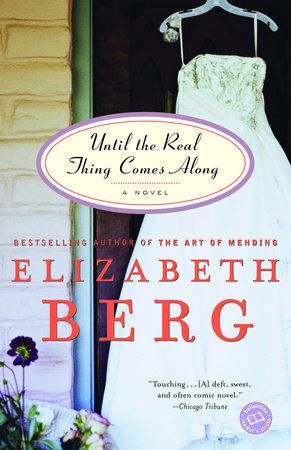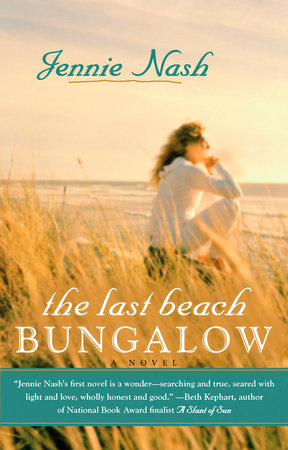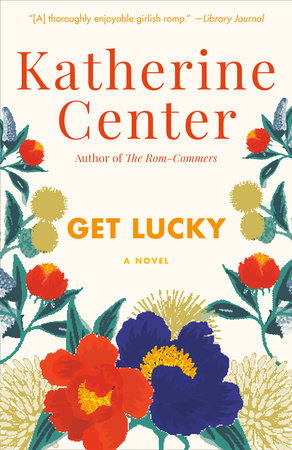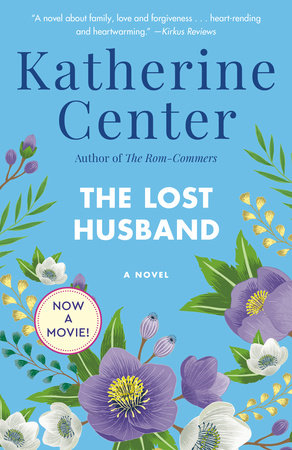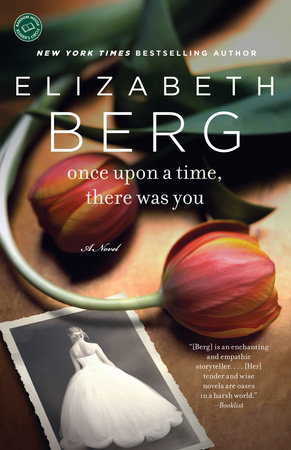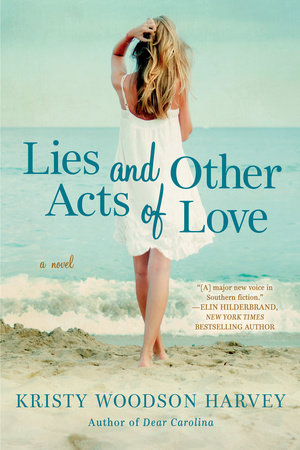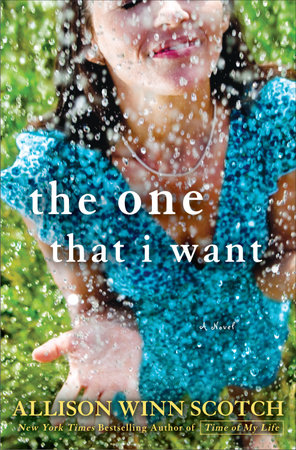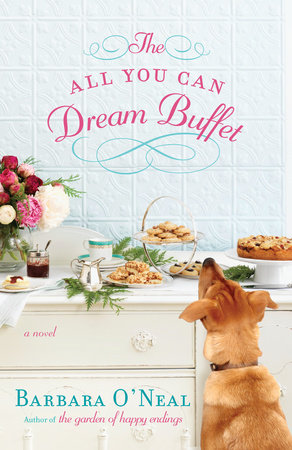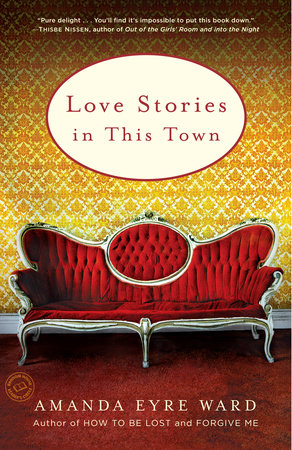An Interview with Katherine Center
Question:Your account of your character Jenny Harris’s pregnancy and its aftermath is about equal parts harrowing and hilarious. I kept thinking, I hope to God that this is one first novel that’s not highly autobiographical!
Katherine Center: Not autobiographical! At least, I was not dumped on the night before I had a baby. Quite the opposite. I am married to a mind-bogglingly helpful man who is a kick-ass father. But there is an autobiographical component to the story. Because even with a great husband to help me, I was still completely overwhelmed by those first months of parenting when I had my own daughter. I could barely keep my head above water. And I found myself wondering over and over how single mothers did it. It seemed like the most impossible thing in the world. And I wanted to explore that a little bit.
Question:Did you always want to be a writer? How long did you work on The Bright Side of Disaster, and what was your path to publication?
KC:I always wanted to be a writer. Though I had my periods when I was discouraged about writing and decided to want to be something else. But as often as I thought about landscape architecture or family therapy or graphic design, I kept boomeranging back to writing — even though those other jobs seemed like they’d involve a lot less heartbreak.
I started writing The Bright Side of Disaster on a dare. I was staying home with my toddler at the time, and I was kvetching on the phone with my sister that I wasn’t doing any writing and I felt kind of lost, and she interrupted me and said, “Write a novel about being a mom. How hard can that be?” Those were the right words and the right time, and I sat down the next night and started writing. I had the idea for the story and a vague sense of where I wanted to go, and once I started, the story took off and I was running to catch it. There were nights when I literally could not type as fast as the story was coming into my head. I spent all day with my daughter, watching her toddle around at the park and ruminating on the story, and then, the minute she went to bed, I’d race to the computer and start typing. I wrote every single night obsessively. At the end of six weeks, I had a very rough draft. Then I spent the next year polishing and revising.
After I finished it, I wasn’t sure what to do next. I literally had on my To Do list: “find agent,” and “sell novel.” But I had no idea how to go about it. I got pregnant again, then had the baby unexpectedly early, and then was catapulted back into babyville. The manuscript sat in a drawer for about a year. I had almost forgotten about it when I met, by chance, a novelist named Vanessa Del Fabbro at the park with my kids. She offered to read the manuscript, and then she passed it along to her agent, who agreed to represent me. Before I knew it, Random House had bought the book. I was very lucky.
Question:Getting a first novel published is impressive enough. But doing so while being a mother of two young children is downright awe-inspiring. How do you juggle the demands of motherhood and writing?
KC:You know what? It’s really hard to find time to write! Both jobs — raising kids and writing — take a kind of obsessive dedication and attention to detail that requires a lot of time. I had no appreciation for the luxurious amounts of free time I had before the kids. That said, I am wiser about life in a million ways since they came into my life. They’ve made me a vastly better writer. And it’s a great life. I’m as grateful as can be.
Question:Do you write every day? Tell us about your daily routine.
KC:I write every day when I have a project. When I’m working on something, I’m totally obsessed and can write for many hours at a stretch. But I also have down periods when I’m thinking and taking notes, but not actually working to construct a story. For me that early, loose period when anything can still happen in the story is very important because I don’t always know where the story’s going to go when I start. And then I have other down periods when I’m just living and recharging. Those are important, too.
Question:I think a lot of women readers are going to be very curious as to whether the character of Gardner is based on a real person… and if so, whether you can give out his phone number!
KC:I think a great thing about Gardner is that he’s had his heart broken — his wife left him for her dentist — and he has used that sadness in his life to get smarter about people and how to treat them. There’s that joke that if a woman gets dumped, she thinks, “What’s wrong with me?” but if a man gets dumped, he thinks “What’s wrong with her?” I love that Gardner defied that stereotype and really did some thinking about how he could have done a better job with his wife. As for whether or not he’s based on a real person, I confess that at the beginning I based a fair bit of Gardner on my husband, who is helpful and nurturing like that, and frighteningly good with babies and children — and also very, very funny. Though, in the end, as always happens, Gardner is his own person.
Question:Do you usually base your characters on real people, at least initially?
KC:I usually try hard not to. Though writing, for me anyway, is like making a collage. I use pieces of many different real people and glue them together with things I’ve made up. You know: one person’s eyes, another’s nose, another’s fear of heights. If I find myself using too many pieces of the same person, I’ll usually make a conscious decision to go another way. And then, once I have the basics down, that character — in some mysterious way that even I don’t understand — starts to come to life and say things and do things all on his or her own. It’s amazing to witness.
Question:What about Dean? For all the horrible stuff he does in the course of the book, I couldn’t’ help feeling sorry for him.
KC:Yeah, Dean’s not a total villain. He’s just self-centered. And immature. And undependable. In some ways, he’s a lot like Jenny’s dad, who is not a bad guy. Jenny’s dad has made some mistakes, sure. And he can’t seem to sustain a relationship. But he wants to do the right thing. Maybe Dean will mature into somebody who tries harder. Or, more likely, maybe not.
Question:What advice would you give to aspiring writers? I know that you have a M.A. in fiction writing — what are the benefits of pursing a degree? Are there any down sides to it?
KC:What I know about writing, I really learned from reading writers that I like. And from writing — writing all the time: letters, e-mails, stories, screenplays, essays, poems, journal entries. Ideally, a writing program could give you a chance to focus on reading and the craft of writing. But the truth is, if you are a real writer, you’re going to do that anyway. And the stories that you write would be far better served by your spending a year on a boat, say, or in a Central American town, or working as a skit instructor. Your writing would be better served by racking up life experiences that you can use later than by sitting in a room looking and Xeroxes of other people’s short stories. What I mean to say is, the one thing writers can’t really write about is characters who are in graduate school for writing. So best to do other things.
Question:Are you working on a new novel?
KC:You bet! I will have a second novel coming out Summer of 2008. I have a first draft for that story already and will spend the summer polishing it up. Its working title is Everyone is Beautiful.






